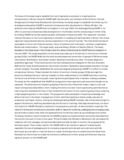| dc.description.abstract | The focus of this study was to establish the role of agriculture extension in creating fanner entrepreneurs in Kenya. Using the NALEP staff, fanners (who are members of the Common Interest Groups) and the Focal Area Development Committees, the study sought to establish the following; the strategies employed by NALEP to promote entrepreneurship development in Kikuyu Division, the achievements made by NALEP since its inception in the year 2000, the challenges facing NALEP in its effort to promote entrepreneurship development in the Division and the various ways in which CrGs formed by NALEP can be self-sustaining after withdrawal of focal area staff. The researcher reviewed relevant literature on the role of agriculture extension in creating entrepreneurship in Kenya. The review captured various studies done by various researchers in the area of interest. The theoretical framework was based on three main theories namely; theory of achievement/motivation, extension organization Model and modernization. The target study area was Kikuyu Division of Kiambu District. The study focused on five focal areas in the Division and the various CrGs formed by NALEP since its inception in the year 2000. The target population of this study was made up of the fanners in the common interest groups (CrGs), the NALEP staff and the focal area development committee. A sample of 66 fanners was interviewed. Stratification and simple random sampling methods were used. The study adopted a qualitative approach. Three unstructured interview schedules were designed for Fanners, Extension Staff and for Focal Area Development Committee members. Qualitative data analysis was done through content analysis. The study established the various strategies employed by NALEP in its effort to create entrepreneur fanners. These included: formation of common interest groups (CrGs) amongst the fanners to facilitate fanners' training; inclusion of other stakeholders in the NALEP activities; involving the fanners at all levels of the project; ensuring fanners participate fully in decision making processes. The study further established that NALEP as a programme has made some achievements though not as expected. The achievements included: grouping of farmers into CrGs which make it easy to train and impart entrepreneurship skills to them; helping the farmers to start income generating activities hence improving their standards of living. It has initiated the formation of one marketing group hence ensuring a high bargaining power in the market. The programme also succeeded in imparting knowledge and skills to farmers in the better management of their activities resulting in better yields, less cost of production and higher income. Among the challenges facing NALEP included; lack of financial strength to support the farmers, declining attendance by the farmers in trainings, field days and seminars, too short time frame for NALEP officials to implement the programme and lack- of demonstration materials. The need of training and retraining the extension staff on issues of marketing, packaging and emerging crops and animals to ensure they meet the expectations of the farmers came up as a challenge to be noted. This study therefore recommends that the NALEP programme implementation period be extended from the current one year to three to five years. This will enable the officials to effectively train and equip the residents with the necessary entrepreneurship skills and also be able to monitor the progress of the started projects. There is also need for the NALEP staff to be trained on issues of marketing and especially the area of packaging and on emerging crops and animals such as mushrooms and fish farming so as to be able to meet the farmers' needs. And finally there is need to fund the Focal Area Development Committee to enable its members to effectively monitor group activities and relay any issues of concern to the NALEP staff. | en |

